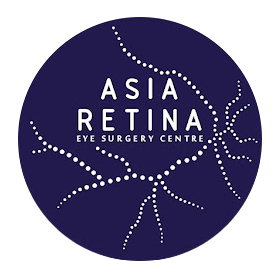Resolve Retina Issues & Restore Your Vision
With Dr Claudine Pang
Act early to protect your vision.
Dr. Claudine Pang is a retinal surgeon known for her refined surgical technique and personalised, timely care for retinal conditions that require prompt attention to preserve vision.
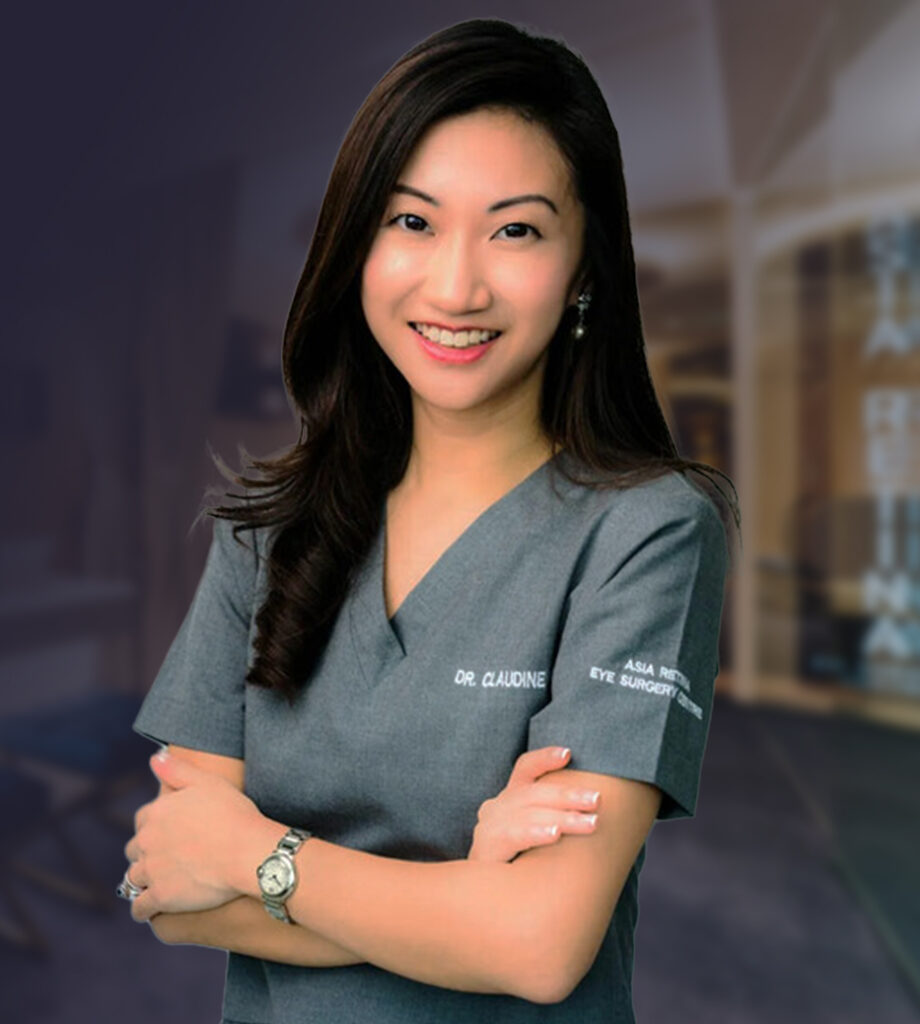

OVER 20 YEARS OF EXPERIENCE

PERFORMED THOUSANDS OF RETINAL SURGERIES

TAILORED TO YOUR CONDITIONS AND NEEDS

4.9 STAR GOOGLE REVIEWS
Are You Suffering From These Symptoms?
Retina detachment can lead to severe vision loss if not addressed promptly. These issues are often due to age, severe myopia, or trauma, leading to the retina pulling away from its normal position, which can hinder your daily activities and diminish your quality of life.

Pain in the Eye Area

Blurred Vision

Reduced Peripheral Vision
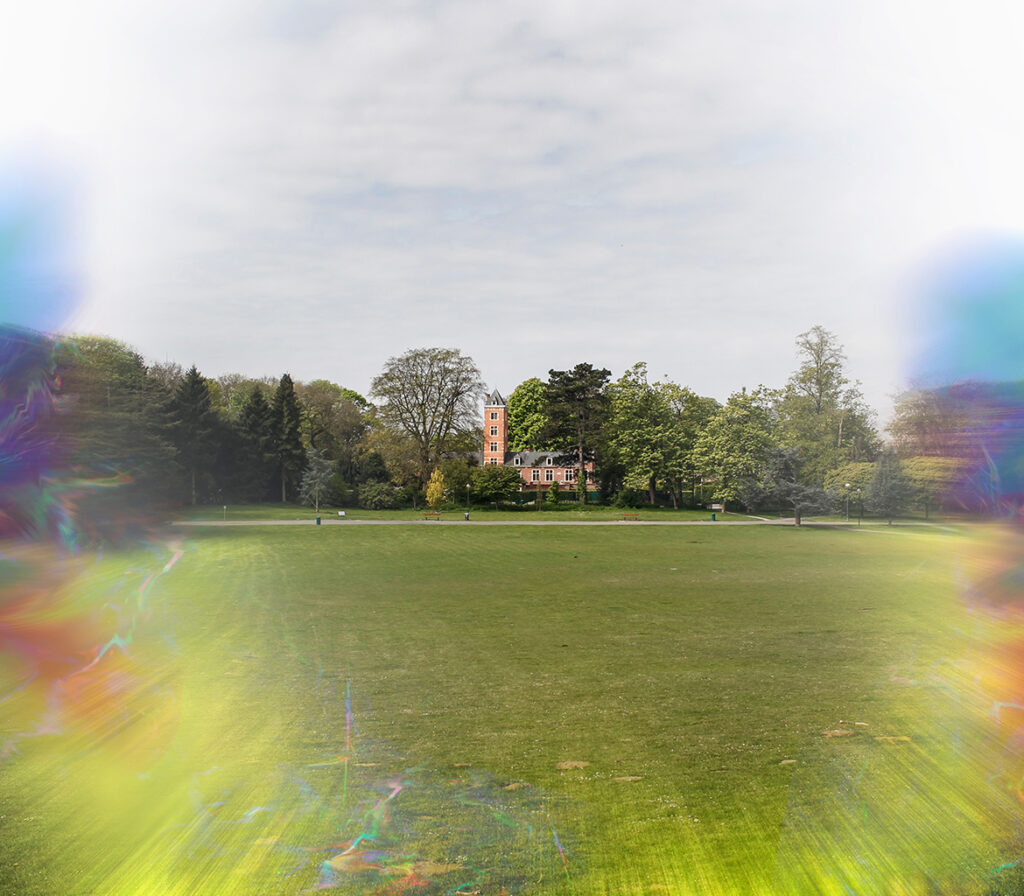
Flashes of Light in the Eyes
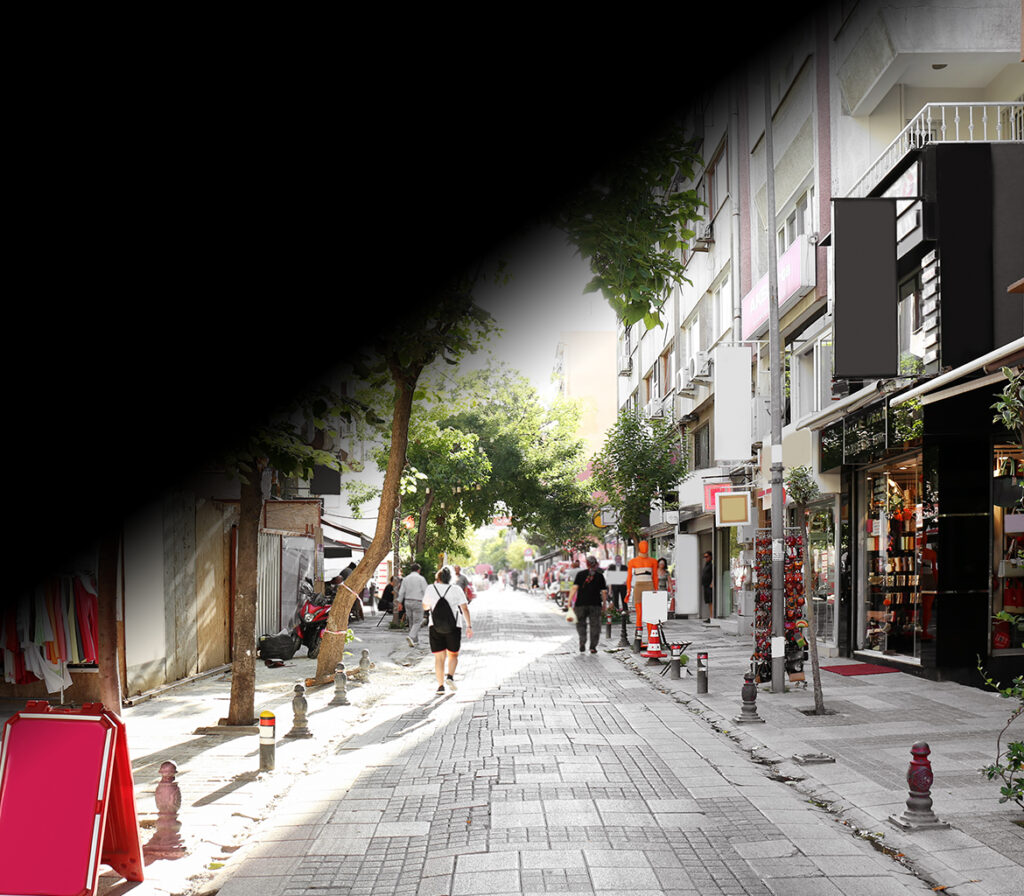
A Shadow Over the Visual Field That Resembles a Curtain

Small Specks That Float Around Your Field of Vision
About Dr Claudine Pang
Consultant Ophthalmologist
MBBS, MRCS Edinburgh (UK), FRCS Edinburgh (UK), FAMS (Ophthalmology)
Dr. Claudine Pang is a Consultant Ophthalmologist with distinguished credentials, including MBBS, MRCS, and FRCS from Edinburgh, and a Fellowship from the Academy of Medicine, Singapore. After graduating with distinction from the National University of Singapore in 2004, she spent eight years at the Singapore National Eye Centre gaining post-graduate qualifications and specialist accreditation in Ophthalmology.
Dr Pang trained under esteemed mentors globally, including an 18-month fellowship at the Vitreous-Retina-Macula Consultants of New York and the first female recipient of the William H. Ross Surgical Vitreoretinal Fellowship at the University of British Columbia. She also worked at Moorfields Eye Hospital in London, focusing on Retinal Electrophysiology and Genetic Retinal Diseases.
Dr. Pang has spoken at numerous international forums and authored groundbreaking research in top ophthalmology journals. With over 20 years of experience, she has performed thousands of cataract and retinal surgeries. Her experience encompasses retinal detachment, macular surgery, and various retinal conditions.
Retinal Detachment Surgery
There are primarily two methods for conducting retinal detachment surgery. The decision on which method to use will depend on the severity of the retinal tears and detachment.
Scleral Buckle Surgery for Retinal Detachment
The procedure targets the sclera—the white part around the eyeball, which forms the eye’s outermost wall. Here, the surgeon affixes a small sponge, flexible band, or silicone piece close to a retinal tear. The device is designed to press the sclera towards the tear, aiding in the repair of the retina. This surgery may be performed under either general or local anaesthesia; in the latter case, eye drops will be used to numb the eye. If the retina is not fully detached, a technique known as pneumatic retinopexy may be employed, involving the injection of gas into the eye to reposition the retina.
Vitrectomy for Retinal Detachment in Singapore
The procedure involves removing vitreous gel from the eye, starting with anaesthesia and sterilisation of the treatment area. A small incision is made in the white of the eye, and using special tools, the problematic gel is removed, addressing any associated issues like blood clots or retinal injuries. Substitutes like silicone oil or gas replace the removed gel. Finally, the area is treated with antibiotics and covered with a protective bandage to prevent infection and ensure proper healing.
Common Macular Disease
Common Macular Disease Symptoms
- Metamorphopsia - may cause straight objects to appear wavy, flat objects to appear rounded, and shapes to appear distorted.
- Loss of central vision - may start with a small dark spot in the centre of the vision that gets larger over time. Central vision loss can progress very quickly.
Common Macular Conditions
- Epiretinal Membrane - a thin membrane that forms over part of the retina known as the macula. The macula is the most sensitive part of the retina and is crucial for sharp central vision.
- Macular Hole - is a rare eye condition that can blur the central vision you use to do everyday tasks like driving or reading.
- Macular Degeneration - is an eye disease that can blur your central vision. It happens when ageing causes damage to the macula which is the part of the eye that controls sharp, straight-ahead vision.
Treatment Options
Non-Invasive
- Light Photobiomodulation Therapy
- Micropulse Laser Therapy
Invasive
- Injection Therapy
- Macular Vitrectomy Surgery
Why Choose Asia Retina

Led by experienced retinal specialist who diagnoses and treats a full range of retinal conditions.

Individually planned, patient-centric care, with tailored treatment plans to achieve quality visual outcomes.

Emphasis on safety, comfort, and visual recovery, supported by modern surgical techniques and meticulous follow-up.

Comprehensive retinal diagnostics with comprehensive imaging and monitoring technology.
Retina Issues Can Lead to Severe Vision Loss
Get a comprehensive eye check at Asia Retina today and get an accurate diagnosis with professional medical advice on your condition.
Frequently Asked Questions
How Does the Doctor Decide Which Procedure Is Suitable?
The doctor may decide which treatment is performed according to the patient’s needs and type of Retinal Detachment or tears along with other factors, including whether there is any pre-existing cataract.
What Is the Recovery Time Required for Retinal Surgery?
After undergoing surgery for retinal detachment, recovery can take 2 to 4 weeks before being able to return to normal activities and work.
During this time, you may be prescribed eye drops to prevent the pupil from opening or closing, or as a prevention measure against infection. These eye drops should be used at regular timings and instructions will be given regarding their use.
Surgery-related effects such as pain in the eye and blurry vision may be present for a few days after the surgery but are well tolerated by most patients. The affected eye may also be swollen and tender for weeks after the surgery, and may also appear red during this time. This is considered to be normal and part of the healing process for your eye.
What Should I Look out for After the Operation?
Rest is crucial for recovery after eye surgery, as stress and fatigue can hinder the healing process. It’s common to feel more tired than usual following the procedure, so ample rest is advised. Strenuous activities, including heavy lifting and vigorous movements, should be avoided, and it may be necessary to take 2 to 4 weeks off work to fully recover.
Extra care should be taken when washing to avoid getting soap or water in the eye, using a face towel to reduce splashing. Protection against intense sunlight is important, especially in places like Singapore, so wearing sunglasses outdoors and even indoors is recommended. Driving should only be resumed when vision is clear, and it’s best to consult your doctor if there’s any uncertainty about your ability to do so safely.
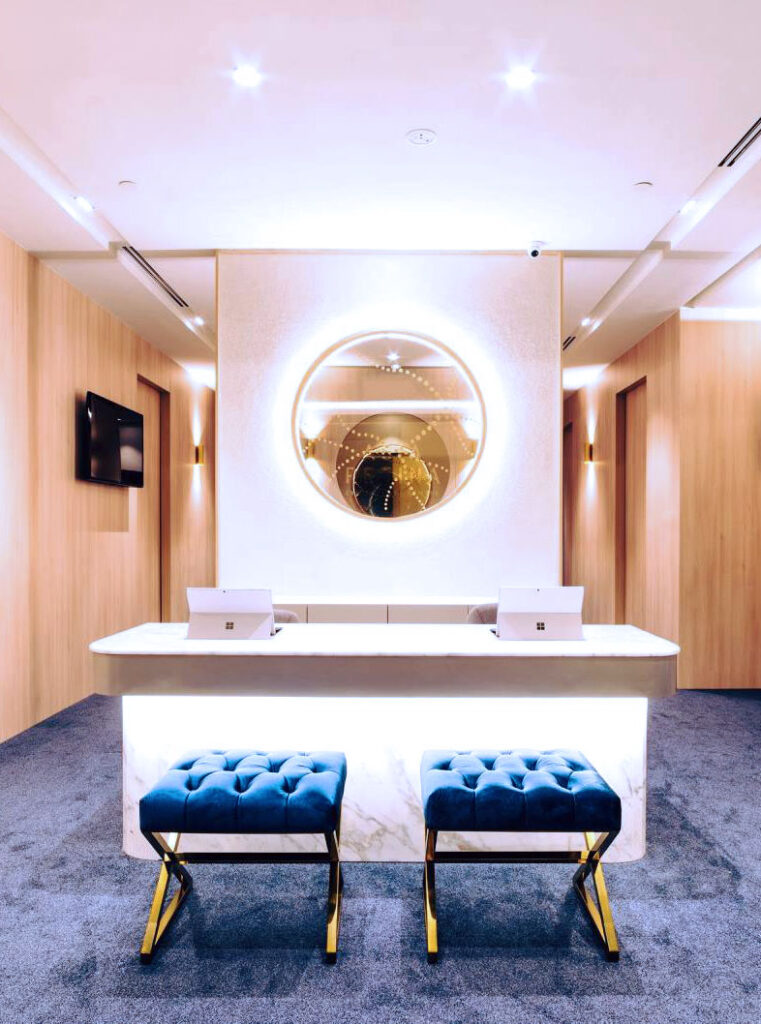
About Asia Retina Eye Surgery Centre
Asia Retina Eye Surgery Centre was established to provide comprehensive ophthalmologist eye care services to our patients in Singapore, with an emphasis on retinal care.
We use modern techniques and instruments to help our patients improve their eye vision and health. Our mission is to spread awareness of the simple and proactive steps everyone can take to achieve eye wellness and prevent eye diseases in Singapore.
We are passionate about delivering quality eye care in Singapore focused on:
Fully customised and individualised ophthalmology eye treatments
Attentive and personalised ophthalmology eye care and medical advice
Innovative and technologically progressive ophthalmology eye care solutions
Contact Information
- #15-10 The Paragon, 290 Orchard Rd, Singapore 238859
- (65) 6732 0007
- (65) 9118 0007
- [email protected]
-
Mon to Fri: 9:00AM - 5:00PM
Sat: 9:00AM - 12:00PM
Sun & PH: Closed
